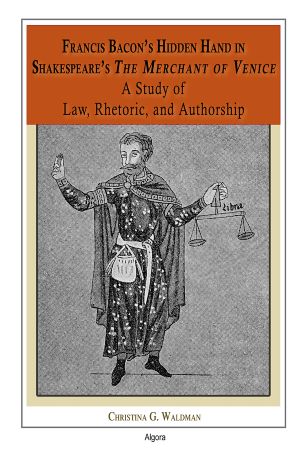This book explores The Merchant of Venice, by William Shakespeare who has been assumed, on the basis of tradition (which, then, must be subject to critical assessment), to be William Shaxpere (1564‒1616), the actor from Stratford. The book focuses on the character “Bellario,” the old Italian jurist who, when summoned by the Duke to court, to advise him in the matter of Shylock v. Antonio, makes his excuse of illness and recommends that the Duke allow his protegeé “Balthazar” (Portia), to “appear” (make a court appearance) in his place. This book sees the play as a treasure hunt (like the hide-and-seek game ring-o-lario) by the man who, the book argues, invented the word “hint” (from scent and hunt; one meaning of “hunt” is change-ringing, shifting the order of bells in a hunt). It explores whether Francis Bacon, the self-described “bell-ringer who calls all the wits together” and inventor of the inductive method and validated scientific experimentation, wrote the play. Readers may not be aware that Francis Bacon wrote religious satire, or that he was so witty people scribbled down the things he said at dinner parties, or who confessed he wrote “toys” or “trifles” for his own re-creation. It has been conceded that Shakespeare’s plays are full of law. However, some of it is not readily apparent, but requires close looking (“curious” or close reading, Bacon might say). sleuthing. Among other topics, this book examines: what Bacon was doing when the play was written (“Tower work,” Spedding called it); play sources such as the Processus Sathanae (a 12-13th century legal satirical law treatise), Bacon’s Maxims of the Law, Meditations Sacrae, and Colors of Good and Evil), the Ordo Bambergensis; law and equity; and Stephan Kuttner’s “a forgotten definition of justice.” It explores the possibility that Bacon, a common-law English lawyer who was a “closet civilian” in Protestant England, preserved valuable knowledge in verse form, like the ancient Roman “scientific” poet Lucretius, in order to help ensure its preservation for future generations (“for all time,” Ben Jonson had said of Shakespeare). What can we learn from an “inquisition” into Shakespeare’s Bellario?
